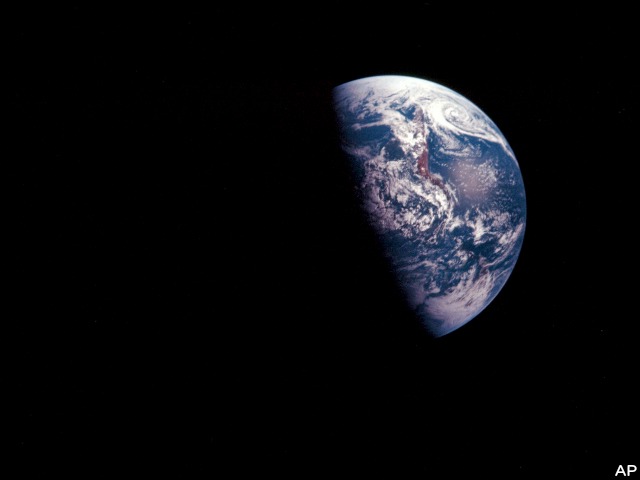NOTE: This op-ed is apparently too hot for some editors to handle. Late last week it wasaccepted and posted on politix.topix.com only to be abruptly removed some two hourslater. After several hours of attempting to determine why it was removed, I was informed the topix.com editor had permanently taken it down because of a strong negative reaction to it andbecause of “conflicting views from the scientific community” over factual assertions in the piece.
Fortunately, some media outlets recognize a vigorous scientific debate persists over humanity’sinfluence on climate and those outlets refuse outside efforts to silence viewpoints that runcounter to prevailing climate alarmism. My original piece follows below.
The release of a United Nations (UN) climate change report last week energized variouspoliticians and environmental activists, who issued a new round of calls to reduce greenhousegas emissions. Some of the most fiery language in this regard came from Sen. Barbara Boxer (D-CA), who called upon Congress to “wake up and do everything in its power to reduce dangerouscarbon pollution,” while Secretary of State John Kerry expressed similar sentiments in a StateDepartment release, claiming that “unless we act dramatically and quickly, science tells us ourclimate and our way of life are literally in jeopardy.”
Really? Is Earth’s climate so fragile that both it and our way of life are in jeopardy because ofrising carbon dioxide (CO2) emissions?
In a word, no! The human impact on global climate is small; and any warming that may occuras a result of anthropogenic CO2 and other greenhouse gas emissions is likely to have little effecton either Earth’s climate or biosphere, according to the recently-released contrasting reportClimate Change Reconsidered II: Biological Impacts, which was produced by the independentNongovernmental International Panel on Climate Change (NIPCC).
This alternative assessmentreviews literally thousands of peer-reviewed scientific journal articles that do not support andoften contradict the findings of the UN report. Whether the subject is the effects of warming andrising CO2 on plants, animals, or humans, the UN report invariably highlights the studies andmodels that paint global warming in the darkest possible hue, ignoring or downplaying those thatdon’t.
To borrow a telling phrase from their report, the UN sees nothing but “death, injury, anddisrupted livelihoods” everywhere it looks–as do Senator Boxer, Secretary Kerry, and others.Climate Change Reconsidered II: Biological Impacts demonstrates that life on Earth is notsuffering from rising temperatures and atmospheric CO2 levels. Citing reams of real-world data,it offers solid scientific evidence that most plants actually flourish when exposed to both highertemperatures and greater CO2 concentrations. In fact, it demonstrates that the planet’s terrestrialbiosphere is undergoing a great greening, which is causing deserts to shrink and forests toexpand, thereby enlarging and enhancing habitat for wildlife. And much the same story can betold of global warming and atmospheric CO2 enrichment’s impacts on terrestrial animals, aquaticlife, and human health.
Why are these research findings and this positive perspective missing from the UN climatereports? Although the UN claims to be unbiased and to have based its assessments on the bestavailable science, such is obviously not the case. And it is most fortunate, therefore, that theNIPCC report provides tangible evidence that the CO2-induced global warming and oceanacidification debate remains unsettled on multiple levels; for there are literally thousands ofpeer-reviewed scientific journal articles that do not support a catastrophic, or even problematic,view of atmospheric CO2 enrichment.
Unfortunately, climate alarmism has become the modus operandi of the UN assessment reports.This fact is sad, indeed, because in compiling these reports, the UN either was purposely blindto views that ran counter to the materials they utilized, or its authors did not invest the amountof time, energy, and resources needed to fully investigate an issue that has profound significancefor all life on Earth. And as a result, the UN has seriously exaggerated many dire conclusions,distorted relevant facts, and omitted or ignored key scientific findings. Yet in spite of thesefailings, various politicians, governments, and institutions continue to rally around the UNclimate reports and to utilize their contentions as justification to legislate reductions in CO2emissions, such as epitomized by the remarks of Senator Boxer and Secretary Kerry.
Citing only studies that promote climate catastrophism as a basis for such regulation, whileignoring studies that suggest just the opposite, is simply wrong. Citizens of every nation deservemuch better scientific scrutiny of this issue by their governments; and they should demandgreater accountability from their elected officials as they attempt to provide it.
There it is, that’s my op-ed. It’s what some people apparently do not want you to read. Whilethe over 3,000 peer-reviewed scientific references cited in Climate Change Reconsidered II: Biological Impacts are likely more than sufficient to establish scientific fact in a courtof law, they are not sufficient to engage the real climate deniers in any debate. The rise inatmospheric CO2 is not having, nor will it have, a dangerous influence on the climate andbiosphere. But don’t take my word for it, download and read the report for yourself (available atwww.nipccreport.org). Compare it with the UN report. You be the judge!
Dr. Craig D. Idso is the lead editor and scientist for the Nongovernmental International Panelon Climate Change (NIPCC).

COMMENTS
Please let us know if you're having issues with commenting.